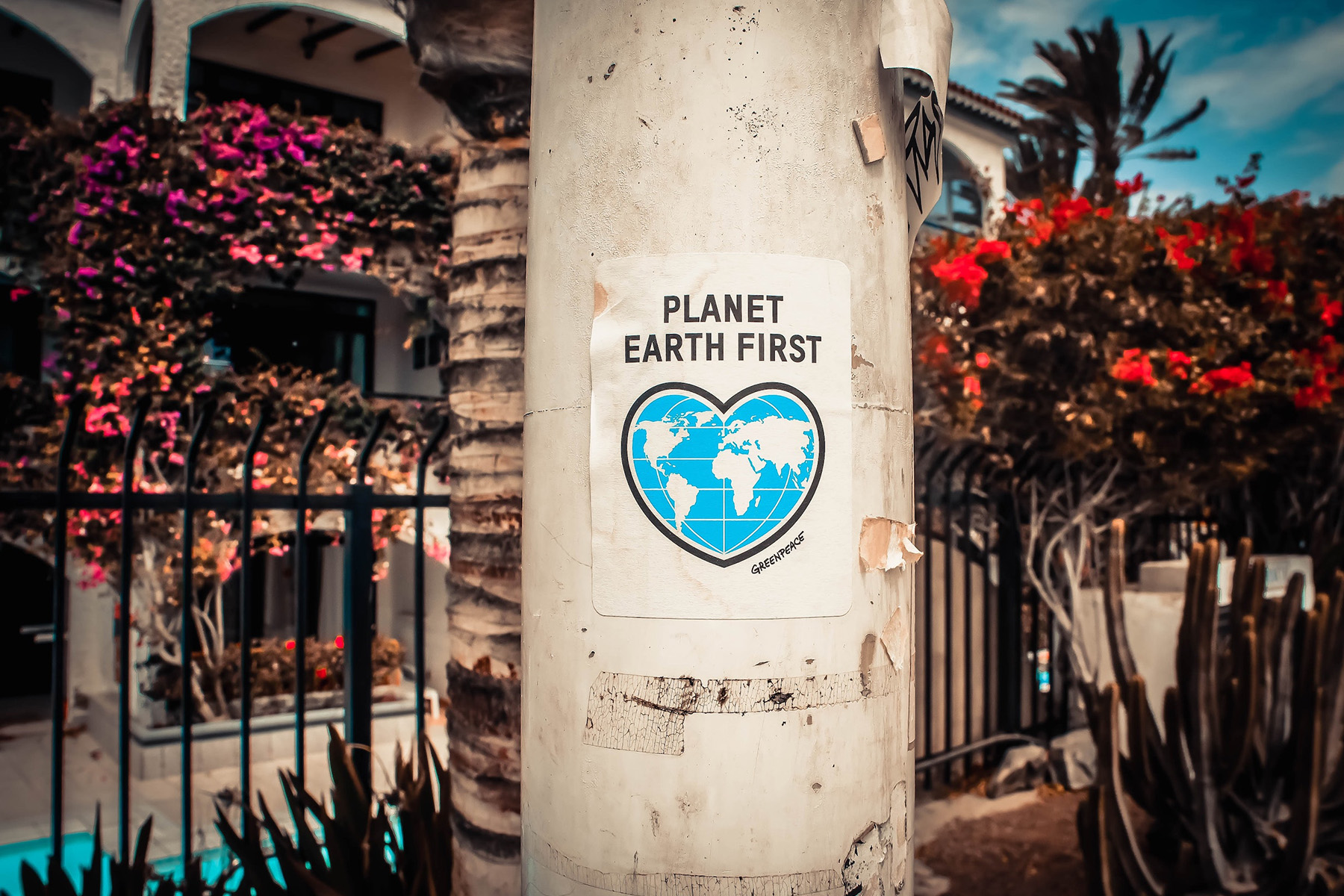A few years ago, I went on a first date in a supermarket. It was a bit unorthodox, but not actually a bad setting for the awkward chit-chat required of someone that you meet on a dating app. Plus, I really needed to buy some groceries.
As always, I had a reusable tote bag with me so that I wouldn’t be given another unnecessary plastic bag. On the walk back to my apartment, the guy asked me if I was from California. No, I’m from New Jersey, I told him, why? Oh, he said, it’s just, the tote bag…I just assumed.
This is a slightly strange jump—from tote bag-user to Californian—but not one that I was so unfamiliar with. Using a tote bag demonstrates that I think about my carbon footprint, and California is a stereotypically liberal state.
His thinking was, if I use a tote bag, then I must be liberal. New York and New Jersey are also very liberal states, but he was from New York, and perhaps he didn’t own a tote bag.
To be fair, I am liberal, in the American sense of the word, meaning I vote along the lines of the Democratic party. But the very fact that we can infer someone’s political affiliation because they own a tote bag is slightly bizarre, if not fully misguided.
A similar phenomenon exists around the use of refillable water bottles. For a while, if you saw someone take a reusable water bottle out of their bag (perhaps a tote bag), it wouldn’t be so off base to assume that they were a Democrat.
Stereotypically, the chosen water bottle of the Republican party is not reusable, and probably comes wrapped in a Poland Spring label.
Reusable items like tote bags and water bottles are small ways for consumers to signal their environmental conscience. And in the United States, where the environment is yet another issue that has become coopted by partisanship, the use of such banal items is not a bad way to guess who we voted for in the last election.
What is problematic about this, though, is that the environment is not a partisan issue. Or rather, it shouldn’t be. The climate crisis affects the entire planet, and all of its species, across all countries, all generations, all races and genders. So, no, the environment is not a partisan issue, nor is it a moral issue or a religious one.
The environment is a people issue, and it requires all people, regardless of their political beliefs, to come together and do their part.
In order to solve the human-made crisis of global warming, we need a governing body to intervene, regulate destructive human behavior, and tax activities that inflict the greatest environmental harm.
The problem is, in the United States, the conservative party is big on personal freedom and tries to avoid words like ‘regulation’ and ‘taxes.’ They also believe in minimal government intervention (though starting wars and bailing out companies feels pretty hands-on to me).
And so for many US Republican leaders—not just Donald Trump—the environment is something to be ignored, downplayed, dusted under the rug, overshadowed as it is by the tenets of personal freedom, economic growth and the ‘free’ market.
It is for the sake of this last point, this misnomer—the free market—that many world leaders are hesitant to implement the kind of environmental regulations we need; it is why US leaders continue to renege on their commitments to lower carbon emissions; it is why George Bush pulled out of the Kyoto Protocol, and why Donald Trump pulled out of the Paris Agreement.
But, what is conservatism, really, and why do so many leaders of the same name not take care to conserve their planet?
Historically, and simply, conservatives prefer that which is historically inherited, concrete and tested, and are partial to institutions and practices that have evolved gradually and are manifestations of continuity and stability.
Edward Burke, who is considered to be the father of modern conservatism, believed that, to curb human’s destructive instinct, we need government institutions and bodies, without whose restraining power there can be no ethical use of human’s liberty.
It would seem to me that one of humans’ destructive instincts is our treatment of the natural world, and in true Burkean manner, conservatives should be looking for ways to mitigate this bad behavior.
But as we know, that has not always been the case. So, let’s look at some of the contradictions that exist within the conservative party:
– Conservatives favor institutions and practices that have evolved gradually and show stability. But there is nothing stable about a heating planet and volatile weather conditions—a direct result of anthropogenic climate change.
– Conservatism is rooted in tradition, and traditionally, the natural world has been far healthier than it is today; so why aren’t conservatives trying to conserve our natural resources? Unless, perhaps, the real tradition is our exploitation of those very resources.
– Conservatives want to preserve the past, and with a past that boasted greater wilderness and biodiversity, surely this would mean they want to preserve a healthier planet, from an earlier time. But perhaps if the demise of our surroundings has felt gradual, to radically alter our actions and behavior in the name of conservation and the environment would seem radical, flying in the face of the way things have been done.
Or perhaps conservatives—like all of us—are just short-sighted.
And though there sits years of scientific evidence right in front of them, there also sits a structured society of rules, agreements and institutions, all of which would be significantly upended if we decided to take the climate crisis seriously. As the second Viscount Falkland said in 1641, “if it is not necessary to change, it is necessary not to change.”
My argument, of course, would be that it is necessary to change. But perhaps I’m being pedantic.
The thing is, the conservative party didn’t always view the natural world with such blatant disregard.
In 1901, Theodore Roosevelt was elected the 26th president of the United States. He was a staunch conservationist and is remembered as one of the biggest advocates of preserving the natural world. He was also a Republican. Roosevelt, after witnessing first-hand the loss of species and biodiversity in the United States, created the national parks, which preserved 230 million acres of public land and still keeps safe 600 threatened and endangered species.
Across the pond in 1988, Margaret Thatcher, a British prime minister of the Conservative party, spoke to the UN about increased levels of carbon dioxide in our atmosphere, and called for a global treaty on climate change.
And yet today, Trump’s administration has rolled back clean water regulations, weakened rules around methane emissions, and repealed back the Clean Power Plan. They have also eliminated aspects of the Endangered Species Act, which was signed into law over 45 years ago, and is credited with rescuing species such as the bald eagle, the grizzly bear and the humpback whale.
How did we get here? How did we move from a party whose core values might conceivably align them with a group whose name shares the same root word, to one where the only thing they seem to want to conserve are the freedoms of the very corporations that inflict the majority of the harm on our planet?
Capital is important, personal freedom is important, enterprise is important. But have we, as a society, decided that these things are the most important? Have we decided that these things are more important than the millions of people around the world who will lose their homes, their sources of incomes, and sometimes their lives, because of runaway climate change?
Have we decided that these things are more important than the hundreds of species that have already been wiped out, and the many more that are endangered, due to human-made destruction of ecosystems?
Have we decided that these thing are more important than our oceans, the most valuable resource we have in moderating the earth’s temperature?
Conservation can and should be the domain of both the conservatives and the liberals, the republicans and democrats, the left and the right.
Better yet: let it belong to no one. Let it be an issue that does not divide us along party lines, but brings us together in our joint effort to tackle the issue. Because we cannot go at this alone; the problem is too great.
And while it might seem overwhelming, let it not be an excuse to simply do nothing; let it be a rallying call for us all to do something.
I would like to believe that we—as people and nothing more—can realize that the current existential threat that we face is bigger than who we vote for and how we identify. Let’s not let our political leaders tear us apart, but show them that we are stronger together, and that we want real solutions now.




